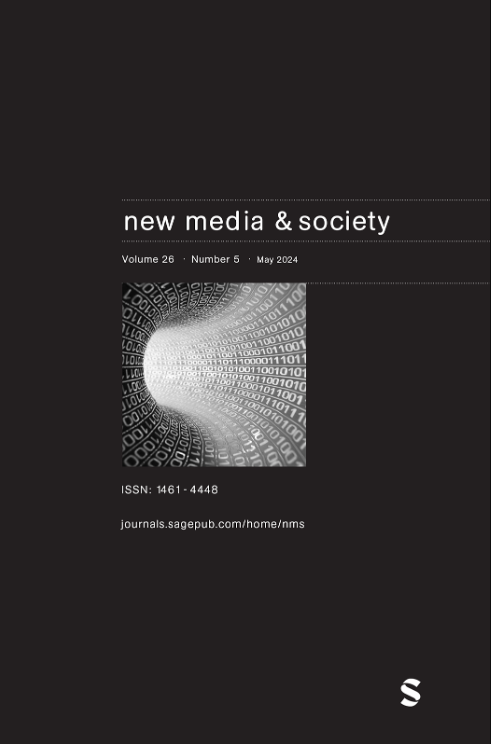National security versus freedom of speech: How media exposure, personal values, and media framing influence non-users’ support for a national ban on TikTok
IF 4.3
1区 文学
Q1 COMMUNICATION
引用次数: 0
Abstract
Our study examines how external factors, including media exposure, personal values, and media framing (i.e. national security vs free speech), influence non-users’ support for a national TikTok ban in the United States via an online experiment-embedded survey (国家安全与言论自由:媒体曝光、个人价值观和媒体框架如何影响非用户对TikTok全国禁令的支持
我们的研究通过一项在线实验嵌入式调查(N = 498),研究了包括媒体曝光、个人价值观和媒体框架(即国家安全与言论自由)在内的外部因素如何影响非用户对美国全国性TikTok禁令的支持。结果显示,虽然感知到的国家安全威胁仅在国家安全条件下预测禁令的支持,但对言论自由侵犯的担忧在所有条件下都持续降低支持。对开放式回答的分析进一步表明,参与者采用了与其实验条件相一致的框架语言。研究结果表明,媒体中的个人价值框架,特别是那些与言论自由价值观有关的价值观,在塑造公众对社交媒体监管政策的意见方面起着至关重要的作用。因此,我们有助于全面了解媒体框架如何影响新兴数字治理问题(如社交媒体监管)的政策偏好。还讨论了其他影响。
本文章由计算机程序翻译,如有差异,请以英文原文为准。
求助全文
约1分钟内获得全文
求助全文
来源期刊

New Media & Society
COMMUNICATION-
CiteScore
12.70
自引率
8.00%
发文量
274
期刊介绍:
New Media & Society engages in critical discussions of the key issues arising from the scale and speed of new media development, drawing on a wide range of disciplinary perspectives and on both theoretical and empirical research. The journal includes contributions on: -the individual and the social, the cultural and the political dimensions of new media -the global and local dimensions of the relationship between media and social change -contemporary as well as historical developments -the implications and impacts of, as well as the determinants and obstacles to, media change the relationship between theory, policy and practice.
 求助内容:
求助内容: 应助结果提醒方式:
应助结果提醒方式:


